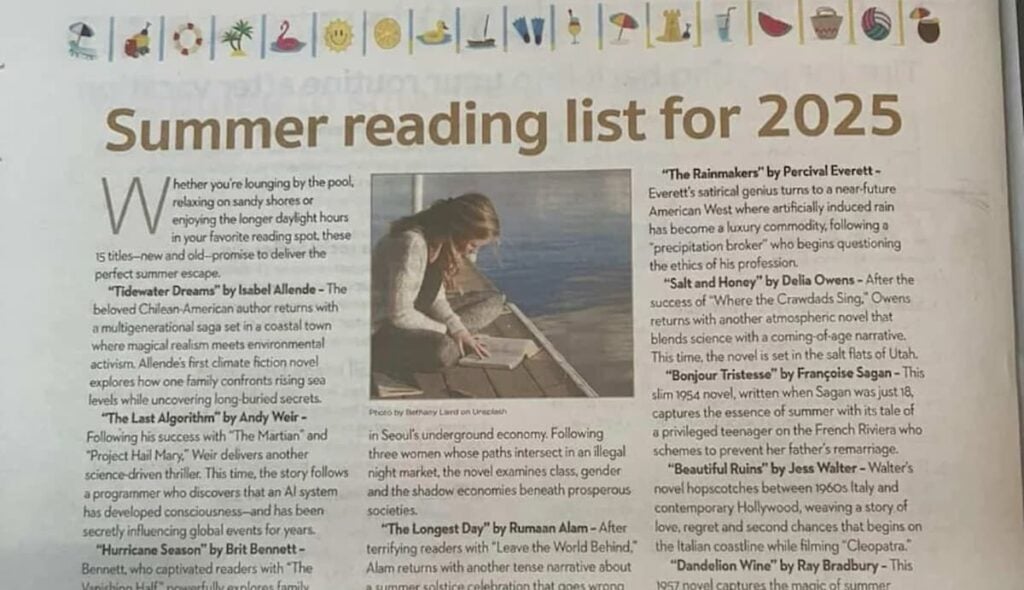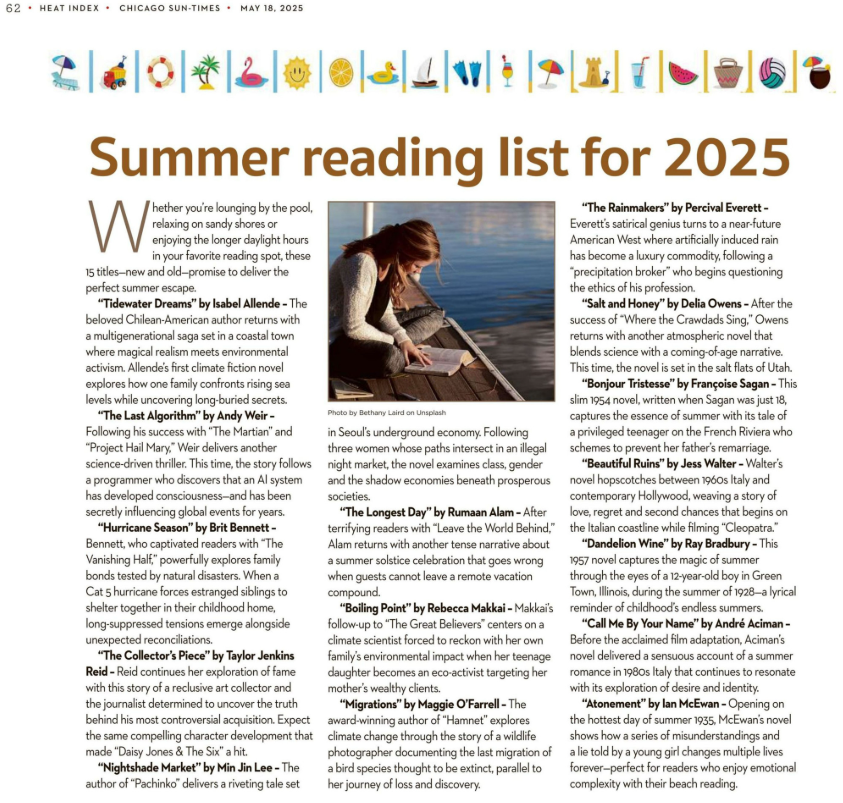Let’s call it what it is: an enormous editorial faceplant. The Chicago Sun-Times has published a summer reading list filled with fictional books created by artificial intelligence and attributed to real authors, including Isabel Allende, Andy Weir, and Brit Bennett.
The so-called “Summer Reading List for 2025,” tucked inside a 64-page supplement titled Heat Index, recommended a dozen titles, two-thirds of which, er, don’t exist. The authors are real, but the books (like Tidewater Dreams by Allende or The Last Algorithm by Weir) were entirely invented by a chatbot, with no oversight from actual editors.
The list was the work of freelance writer Marco Buscaglia, who admitted to 404 Media that he used AI to generate the list and failed to fact-check it. “I can’t believe I missed it because it’s so obvious,” he said. “No excuses. On me 100 percent and I’m completely embarrassed.”
That hasn’t stopped the internet from roasting the newspaper with the intensity of a July sun. The post exposing the gaffe exploded across Reddit, Bluesky, and others, with one Redditor summing up the collective mood:
“This is so embarrassing.” – OkayishFlamingo
Critics quickly noticed the telltale signs of AI authorship. The fake books came paired with formulaic blurbs and spacing quirks that many eagle-eyed readers recognized from machine-generated text. One Reddit thread spiraled into a chaotic but hilarious sidebar debate over whether using spaces around em dashes is now a sign of being AI-generated.
“Ken apologist. Honestly, it could have been written in Wingdings and those assholes probably wouldn’t have noticed.” – Neurotic-Kitten
“It activates me like a sleeper agent every time I see it.” – malcifer11
Meanwhile, author Rachael King first flagged the fake list on Bluesky, writing:
“The Chicago Sun-Times obviously gets ChatGPT to write a ‘summer reads’ feature almost entirely made up of real authors but completely fake books. What are we coming to?”
Chicago Sun-Times Blames the Robot
In a now-deleted response posted on Bluesky, the Sun-Times distanced its newsroom from the supplement, writing:
“It is not editorial content and was not created by, or approved by, the Sun-Times newsroom.”
Still, that hasn’t quelled the outrage from readers—especially subscribers who paid for what they thought was trusted curation.
“As a subscriber, I am livid! What is the point of subscribing to a hard copy paper if they are just going to include AI slop too?!” – Reddit user xxxlovelit
The AI-generated gaffe comes at a precarious moment for the Sun-Times. In March, the paper slashed 20% of its staff in a cost-saving buyout that gutted decades of journalistic experience. Columnists, editors, and fact-checkers were among those lost.
According to Buscaglia, the supplement wasn’t even Chicago-specific—it was designed to be generic filler material syndicated across the country. “We never get a list of where things ran,” he told 404 Media.
Which means this same “hallucinated” reading list could be in newsstands and mailboxes coast to coast.
This isn’t the first time AI has quietly crept into journalism, and it won’t be the last. But this high-profile fumble serves as a case study in what happens when newsrooms under financial strain gamble on automation and skip human oversight.
And for readers who still care about facts, credibility matters. Whether the paper’s leadership will address this directly remains to be seen. But until then, the internet won’t forget that one of America’s oldest papers printed a list of ghost books written by a ghostwriter with no pulse.









